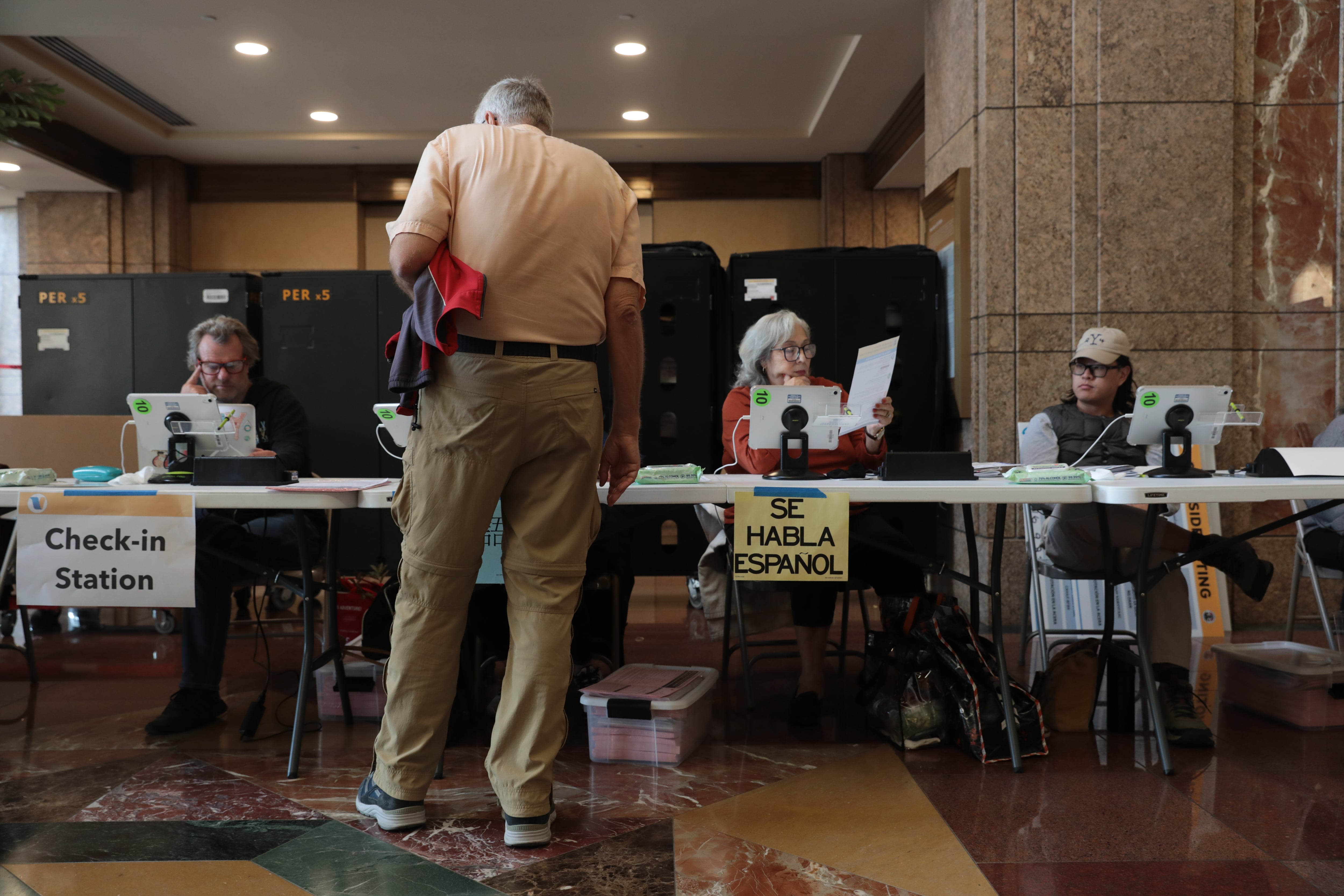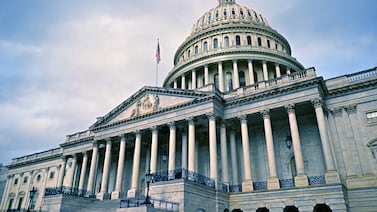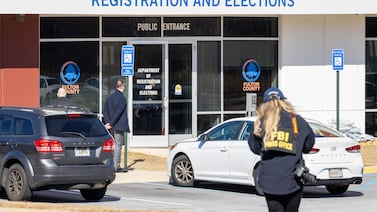Votebeat is a nonprofit news organization reporting on voting access and election administration across the U.S.
This news analysis was originally distributed in Votebeat’s free weekly newsletter. Sign up to get future editions, including the latest reporting from Votebeat bureaus and curated news from other publications, delivered to your inbox every Saturday.
The U.S. Justice Department recently announced it would send monitors to polling sites in California and New Jersey during the upcoming elections, following requests from state Republican parties. Given today’s political tensions, and President Donald Trump’s comments and actions on elections, it’s understandable that the news of federal intervention made many people uneasy.
But the presence of federal monitors at polling sites isn’t new, isn’t necessarily alarming, and doesn’t mean things will go wrong.
The Justice Department has been monitoring elections this way for decades, under Democratic and Republican administrations. Since the Voting Rights Act of 1965, the department’s Civil Rights Division has had the authority to send trained staff to observe elections to ensure that everyone can cast ballots freely and without intimidation. They are not there to run the election or count ballots, and federal law doesn’t intend or allow for them to interfere.
A lot of good things have happened as a result of federal monitoring, and these monitors have also been integral in ensuring that laws intended to protect voters were enforced. Cities like St. Louis, which was the subject of litigation over voting access for disabled people, have seen monitors to ensure that terms of legal settlements were followed. Monitors performed a similar function in Alaska, ensuring language access for voters in Alaska’s native-language jurisdictions.
Court orders also play a role. Union County, New Jersey, for example, is currently eligible for federal observers as a result of a court order under the Voting Rights Act, after the county was found not to have provided adequate voting materials in Spanish.
That’s not one of the places where the Justice Department is sending monitors this year. They will be sent to polling sites in Passaic County, New Jersey, as well as Kern, Riverside, Fresno, Orange, and Los Angeles counties in California.
California officials are criticizing the Justice Department’s decision to send monitors, and state Attorney General Rob Bonta, a Democrat, said the state will be sending observers to watch the federal observers. California’s U.S. senators, both Democrats, have sent a letter to U.S. Attorney General Pam Bondi, asking her to withdraw the observers “due to the Department’s blatantly partisan motivations.”
California, of course, is far from the first state to object over the years, though dynamics often shift based on politics. In 2024, some red states, including Texas, said they wouldn’t allow the observers in; Texas ultimately agreed to do so.
This kind of monitoring happens regularly. Sometimes monitors are assigned to a location because of specific complaints about accessibility, and sometimes it’s because of a history of voting rights violations. Sometimes, local officials request them.
In short, they are intended to be safeguards, not sirens. The elections in California and New Jersey are some of the biggest contests on the calendar this year, so it makes sense to station monitors in those places.
I’m not naïve about the potential risks here. This administration has said some truly wild things about voting, and it’s impossible to forget the attack on the U.S. Capitol. There are reasons to be cautious and to keep a close eye on how this unfolds. But historically, these monitoring efforts have been routine and uneventful — a normal part of how our democracy safeguards itself. In theory, this round should go the same way. At the very least, we know what the historical standard of behavior looks like, and we’ll be able to judge current actions against it in real time.
So if you see these monitors in your community, don’t assume they are there because a scandal is brewing, and don’t let them deter you from exercising your right. Simply vote. In the unlikely event that they do interfere in any way with your voting experience, alert a poll worker, who can ask the county for help.
Years of false claims about elections have done real damage to public trust, and the possibility of voter intimidation is a growing concern. Many voters, advocates and officials worry that the Justice Department’s action may be in bad faith. But historically, the presence of these monitors at the polls is less a sign that democracy is crumbling, and more a reminder that it stands.
Jessica Huseman is Votebeat’s editorial director and is based in Dallas. Contact Jessica at jhuseman@votebeat.org.






